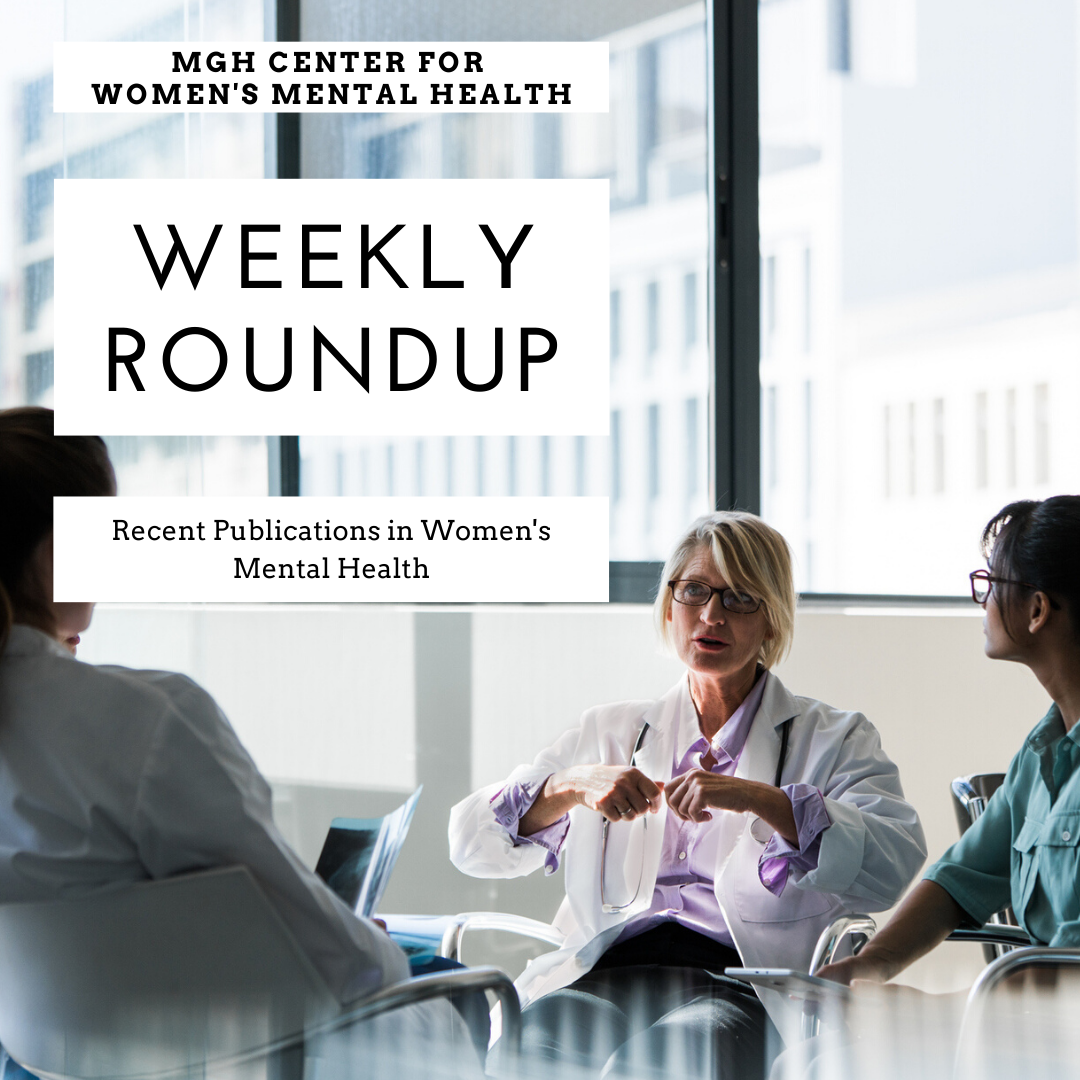
de Avila Quevedo L, Scholl CC, de Matos MB, da Silva RA, da Cunha Coelho FM, Pinheiro KAT, Pinheiro RT. Psychiatr Q. 2020 Aug 18.
The odds of postpartum suicide risk were 6.50 (95% CI: 2.73; 15.48) higher in mothers with postpartum depression and 41.50 (95% CI: 12.11; 142.16) higher in those with mixed episodes than those who did not suffer from any mood disorder.
Postpartum depression biomarkers predict exacerbation of OCD symptoms during pregnancy.
Kaminsky ZA, Osborne LM, Guglielmi V, Jones I, Grenier W, Clark K, Ross E, Meilman S, Nestadt P, Payne JL, Samuels J, Nestadt G. Psychiatry Res. 2020 Jul 25.
Lehtola SJ, Tuulari JJ, Scheinin NM, Karlsson L, Parkkola R, Merisaari H, Lewis JD, Fonov VS, Louis Collins D, Evans A, Saunavaara J, Hashempour N, Lähdesmäki T, Acosta H, Karlsson H. Neuroimage Clin. 2020 Aug 11;28:102380.
Newborn sex was found to moderate the relationship between maternal distress symptoms at gestational week 24 and the volumes of left and right amygdala. This relationship was negative and significant only in males.
Chen LC, Chen MH, Hsu JW, Huang KL, Bai YM, Chen TJ, Wang PW, Pan TL, Su TP. J Affect Disord. 2020 Jul 19;277:109-114.
Both paternal and maternal depression occurring in the pre-pregnancy, perinatal and postnatal periods were significantly associated with subsequent ADHD and ASD in the offspring, with hazard ratios between 1.42 (95% confidence interval [CI]: 1.35-1.49) and 2.25 (2.09-2.41).
Hall HG, Cant R, Munk N, Carr B, Tremayne A, Weller C, Fogarty S, Lauche R.
Midwifery. 2020 Aug 14;90:102818. Free article.
Meta-analysis of four studies revealed a moderate effect of massage therapy on women’s depressive symptoms as measured by the Center for Epidemiologic Studies Depression Scale (CES-D) (MD = -5.95, 95%CI = -8.11 to -3.80, I2 = 0%) compared with usual care. A moderate effect of massage interventions on women’s anxiety were also found based on five studies using various measures when compared with usual care. However, non e of the trials had a low risk of bias.
Maternal stress or sleep during pregnancy are not reflected on telomere length of newborns.
Ämmälä AJ, Vitikainen EIK, Hovatta I, Paavonen J, Saarenpää-Heikkilä O, Kylliäinen A, Pölkki P, Porkka-Heiskanen T, Paunio T. Sci Rep. 2020 Aug 19;10(1):13986. Free article.
Maternal prenatal stress, anxiety, depression, BMI, and self-reported sleep quality were evaluated with self-reported questionnaires. Despite sufficient power to detect similar or even considerably smaller effects than those previously reported in the literature, we were unable to replicate the previous correlation between maternal stress, anxiety, depression, or sleep with infant telomere length.
Third trimester maternal EPDS scores were positively associated with mean diffusivity (MD) in the amygdala-frontal tract and the cingulum, controlling for postpartum depression. Externalizing behaviour had a sex interaction in the amygdala-frontal pathway; weaker connectivity (lower fractional anisotropy, higher MD) was associated with worse behaviour in boys.
Maselko J, Sikander S, Turner EL, Bates LM, Ahmad I, Atif N, Baranov V, Bhalotra S, Bibi A, Bibi T, Bilal S, Biroli P, Chung E, Gallis JA, Hagaman A, Jamil A, LeMasters K, O’Donnell K, Scherer E, Sharif M, Waqas A, Zaidi A, Zulfiqar S, Rahman A. Lancet Psychiatry. 2020 Sep;7(9):775-787.
Reduced symptom severity and high remission rates were seen across both the intervention and enhanced usual care groups, possibly masking any effects of the intervention.
